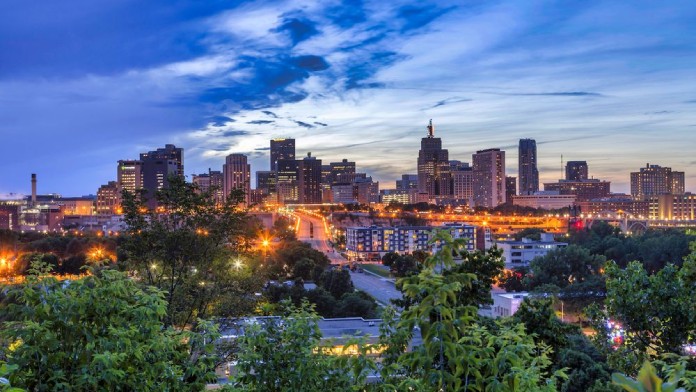Expert Insights
If you or a loved one needs rehab treatment, but cost is a problem, the CCDTF may be able to help. The Chemical Dependency Consolidated Treatment Fund offers financial assistance to St. Paul residents who are eligible. But most CCDFT treatment admissions are referred by social services or criminal justice agencies – which is a problem. The low number of self and family referrals indicates that not enough people know about this option. Minnesota has fewer people in treatment than other states, so we need to get the word out about any programs, such as the CCDTF, that can remove barriers to treatment.
~ Kerry nenn
How Expensive is Drug Rehab in Saint Paul?
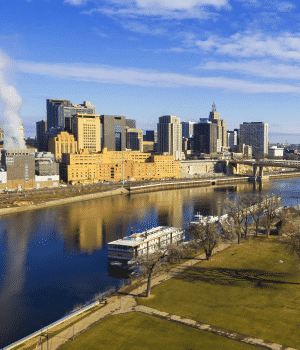 The cost of rehabilitation varies depending on what type of program you choose, the quality of their amenities, and the area you look at. According to the Substance Abuse and Mental Health Services Administration (SAMHSA), there are 172 programs in and around the city, with 132 taking private insurance, 108 Medicaid rehabs, and 64 programs that have tribal/IHS/ITU funding for low-income residents who need care.2
The cost of rehabilitation varies depending on what type of program you choose, the quality of their amenities, and the area you look at. According to the Substance Abuse and Mental Health Services Administration (SAMHSA), there are 172 programs in and around the city, with 132 taking private insurance, 108 Medicaid rehabs, and 64 programs that have tribal/IHS/ITU funding for low-income residents who need care.2
Are There Low-Cost and Free Drug Rehab Centers in Saint Paul?
In addition to federal programs like the SAMHSA block grant, Minnesota has a Consolidated Chemical Dependency Fund that uses public contributions to provide treatment to those in need. Reach out to your local health and human services office to ask about available low-cost or free drug rehabs or detox centers in St. Paul.
Does Insurance Cover Rehab Center Cost?
Health insurance groups are required to pay for the cost of needed medical treatments, including for substance abuse. If you have public or private health insurance coverage, then you can reach out to your plan provider to ask for referrals to St. Paul drug rehabs.
Private Insurance: Private insurance covers the cost of care, up to and including inpatient residential care. It also pays for medication-assisted treatment (MAT) and therapy services. Thanks to the Mental Health Parity Act, insurance companies must pay for any needed medical treatment, regardless of the underlying condition, whether it be diabetes or alcoholism. Depending on the type of insurance you carry, you may be required to pay a monthly deductible when using certain methods, such as residential care. Call the number on the back of your insurance card to inquire about what services are covered and what premiums and copayments you can expect to be responsible for.
Medicaid: Medicaid is a federally funded health insurance program that provides coverage to low-income citizens. According to studies, more than 12% of people across the country who use Medicaid have a substance use disorder and can use the program to pay for care.3 You might qualify if your income is at or below federal poverty standards. Call your local department of human and health services to find out how to apply.
Medicare: Medicare is another federally funded program available for people who don’t qualify for standard coverage due to age or pre-existing conditions. This type of insurance pays for a range of substance use disorder treatments, including counseling and addiction medications.
You might qualify if your income is at or below federal poverty standards. Call your local department of human and health services to find out how to apply.
Does Your Insurance Plan Cover Addiction Treatment?
Because of the Affordable Care Act and Mental Health Parity Act, insurance providers must provide the same level of coverage to clients needing mental health services, including substance abuse treatment, as they provide for any other medical condition.
If you have private insurance, Medicaid, Medicare, or other health insurance and are seeking care, call the number on the back of your insurance card to see what services you’re able to receive. Call
800-681-1058
(Who Answers?)
for assistance finding drug and alcohol rehab centers in St. Paul today.
How Do You Pay for Addiction Treatment in Saint Paul?
If you’re one of the thousands of residents without insurance, you do have options. For example, you can reach out to friends and family to contribute or create a crowdfund such as through GoFundMe. Here are a few other alternatives to explore that might help you pay for care.
Choose a Program that Offers Payment Plans: If you have a source of income but can’t afford the up-front cost of rehab all at once, your chosen facility may be able to work out a payment plan with you. This would split up the cost of your total treatment into manageable payments, possibly requiring an initial deposit or down payment and credit check. Some facilities offer in-house payment plans, while others reach out to third-party financing groups to help their clients access care.
Apply for a Scholarship: A scholarship can help you pay for all or part of your substance abuse treatment. These programs are typically offered to clients who have exhausted all other financial resources. According to SAMHSA, 20 accredited drug and alcohol rehabs in St. Paul are given SAMHSA block grants, and state programs also exist, so if you need it and qualify, there’s a good chance you’ll be able to find a scholarship in the city.2
Find a Sliding-Scale Program: Sliding-scale fees for alcohol or drug rehabs in St. Paul offer low-income clients the option to pay based on a portion of their annual gross income. This program is more commonly offered by state-run or locally-run agencies, and you can find referrals by calling your local health and social services agency.
How Does Saint Paul Compare in Alcohol and Drug Use?
With a population of more than 319,000, St. Paul is the 2nd-largest city in Minnesota and the 64th-largest city in the United States.1 However, substance use disorder and drug overdoses continue to be a problem in the North Star State. Opioid-involved overdose deaths among Minnesotans increased by 44% from 2020 to 2021, and the number of deaths has more than doubled since 2019.2 If you or a loved one struggles with drug or alcohol addiction, there are more than 170 accredited alcohol and drug rehab centers in St. Paul that can help put you on the path to recovery.3
Here are some statistics regarding drug and alcohol use in Ramsey County in Minnesota, the home of St. Paul.1
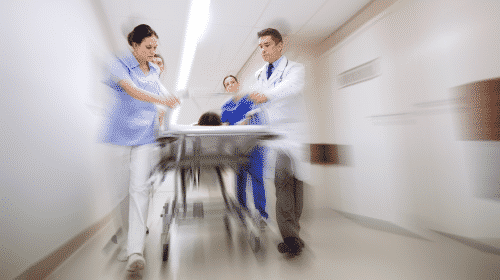
Between 2018 and 2020, there was a 108.66% increase in the rate of overdoses.
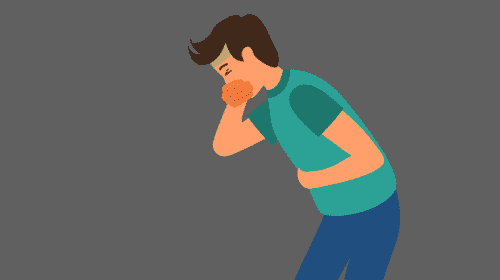
Alcohol poisonings and related deaths increased by 35%.
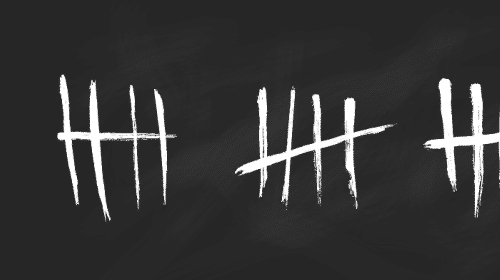
Total deaths in the region rose 15% in this time frame.
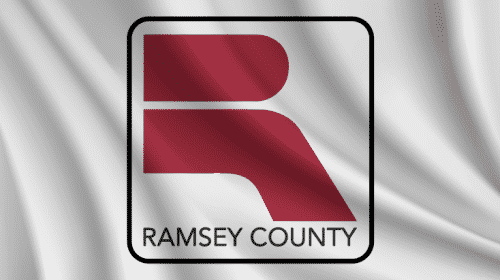
Ramsey County has the second-highest overdose death rate in Minnesota.
Alcohol and Drug Laws in Minnesota
In response to the growing number of drug and alcohol-related issues in Minnesota, the state has passed bills to help protect people with the disease of addiction from judicial persecution and career consequences, as well as the rest of society from the damages caused by substance abuse.
Good Samaritan Overdose Law, aka Steve’s Law: This law provides a certain level of immunity to prosecution for anyone who reaches out to emergency services to assist in an overdose, including people on parole or probation. The law does not inhibit law enforcement from collecting evidence that could be used in separate legal cases, including performing drug tests on people involved.
Minnesota Paid Family and Medical Leave Act: One of the few states to implement such a program, Minnesota offers up to 12 weeks of paid leave to qualified employees undergoing a family or medical emergency, such as needing substance abuse treatment. One stipulation of this program is that employees are guaranteed to have their old job back when they can return. If their old position is no longer available, then the company must offer a similar position at the same pay.
Reporting Prenatal Exposure to Substances: In Minnesota, a woman can be prosecuted as well as involuntarily committed to rehab if she’s suspected of using THC, alcohol, or other illicit substances while pregnant. This reporting is mandated for any healthcare professional unless the person is actively involved in her prenatal care, and can be made by anyone who witnesses her drink alcohol in excess or uses drugs.7
Choosing the Right Level of Care
Depending on your needs, time availability, and budget, there is a range of treatment options:
Medical Detox
Withdrawal from alcohol and opiates can cause severe symptoms for those who have been using it consistently for years or even months. Common side effects include insomnia, headache, irritability, an upset stomach and nausea, and cold sweats. People with more severe addictions might also experience tremors, vomiting, and seizures. There are several withdrawal medications to help you cope with the cravings as well as withdrawal symptoms.
If your addiction is severe enough to warrant medical detox, remember that this is only the first step in recovery from addiction. You must follow up with your addiction recovery case management team to design and implement an effective plan. Your best chance at lifelong success is by attending a 90-day inpatient program, followed by step-down care and ongoing counseling services.
Inpatient
For those with a severe addiction, inpatient alcohol and drug rehab in Saint Paul provides a secure environment with the structure needed to help keep you sober during the initial stages of your recovery. Some inpatient facilities also offer detox services, while others will arrange transportation with a detox center for you.
Inpatient addiction treatment centers tend to have many indoor and outdoor lounge areas to enjoy meals and therapy, as well as cozy private spaces for you to relax. They make up their schedules, with many programs in the area offering outdoor-friendly therapies like yoga or equine therapy along with standard talk therapy treatments.
Partial Hospitalization Programs (PHPs)
Partial hospitalization programs, or PHPs, offer the highest level of care without asking you to live in the facility. Instead, they require several hours of participation each day before returning home. This is a great option if you have responsibilities such as a job, a family, or classes to attend while pursuing addiction treatment.
Intensive Outpatient Programs (IOPs)
Intensive outpatient programs require participation in group and individual therapy, though not as often as a PHP. These programs start at nine hours a week, which can be split up over two, three, or four days, depending on the center. You may also be able to use telehealth services to attend your appointments instead of physically visiting the clinic.
Standard Outpatient
Standard outpatient treatment may only need to be engaged once a week, such as seeing your therapist and picking up medication. These programs can be a great way to learn more about ongoing chemical cessation and community support for relapse prevention.
Aftercare
Once you’ve graduated from your program, know that you will continue to need ongoing counseling and drug education to ensure lasting relapse prevention. Step-down programs can help, gradually lowering the frequency of your counseling sessions and the need for medication.
Sober living homes make a solid aftercare option for someone who wants to live in a safe environment that prohibits the use of drugs or alcohol, preventing you from being exposed to triggers that would make you crave your old addictive substance. Support groups such as NA and AA are also good choices, maintaining the structured therapy environment that you benefited from during rehab.
Self-management and recovery treatment (SMART) programs that focus on your internal processes that lead to using drugs or alcohol (instead of the traditional 12-step program) might be more helpful to your recovery journey. This type of therapy focuses on recognizing the steps that led to addiction and building the motivation and resolve to remain sober.
Finding Specialized Drug Rehabs in St. Paul
If you belong to a specific affinity group, such as the LGBTQ+ community, you might benefit from a program that is sensitive to the unique struggles you face. You might also want to attend care in a treatment center that understands your professional need for confidentiality. Read on to learn about the different types of drug and alcohol rehab in St. Paul.
Veteran
Veterans are at special risk of developing substance abuse disorders, given their much higher likelihood of having traumatic experiences in their past than the civilian population. If you’re a veteran, you might benefit from a supportive rehab environment that allows you to bond with your brothers in arms and recovery and provides programs that speak to the activities you enjoy.
LGBTQ+
People in the LGBTQIA+ community feel the extra burden of societal pressure to conform, gender dysphoria, often body dysmorphia, and strained family relationships. It’s important to find an addiction therapy program that understands these challenges and can provide emotional and motivational support to help you overcome your addiction and obstacles in society.
Men-Only
When looking for rehab as a man, you’ll want to find a place that offers the community support and brotherhood needed to facilitate recovery and a return to society as well as the activities and amenities that appeal to you. For example, if you are a sports fan, look for facilities that have sober outings to sports games or shows.
Women-Only
Facilities for women tend to have services to help reunite families or assist women in finding childcare and staying with their children throughout their recovery. Women’s rehab also has support groups designed to nurture renewed trust and other people after abusive relationships and other unfortunate situations many women in recovery deal with.
Teen
Young people balancing school, work, family bonds, and a busy social life are under a unique set of pressures. A quality program will teach the life skills needed to coordinate your life during and after recovery and offer ongoing supportive aftercare services to ensure lasting sobriety.
Should You Travel for Drug and Alcohol Rehab in St. Paul?
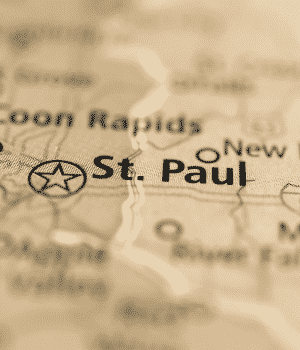 If you love a smaller town feel with midwest charm and a plethora of outdoor spaces to enjoy your favorite hobbies, you may enjoy life in St. Paul, Minnesota. This part of the country is known for its lower cost of living, friendly neighbors, and amazing geography. Learn about the neighborhoods in this lovely city.
If you love a smaller town feel with midwest charm and a plethora of outdoor spaces to enjoy your favorite hobbies, you may enjoy life in St. Paul, Minnesota. This part of the country is known for its lower cost of living, friendly neighbors, and amazing geography. Learn about the neighborhoods in this lovely city.
St. Paul is also home to natural spaces and attractions, as well as fun festivals held year-round. If you want to live in a neighborhood that allows you easy access to nature, check out Como Park, with its nearby Como Park Zoo and Observatory, the only completely free zoo in the country, and Como Lake.
Those with an artistic mindset might enjoy Lowertown, home to galleries and art installations. This hip hood was once one of the area’s largest manufacturing hubs and has tons of re-designed spaces, such as old railroad and banking institutions that are now hip restaurants and art spaces.
History lovers might enjoy life in the North End, home to the Minnesota State Capitol and the Oakland Cemetery. This part of town also has many hiking and biking trails with easy access to the waterfront. Whichever part of the city you decide to stay in, make sure to acquaint yourself with local laws before visiting.
Resources
- St. Paul, Minnesota Population 2020 (Demographics, Maps, Graphs). (n.d.). Worldpopulationreview.com.
- Indicator Dashboards Opioid Dashboard. (n.d.). Www.health.state.mn.us.
- FindTreatment.gov. (n.d.). FindTreatment.gov.
- Center for Disease Control. (2022). CDC Wonder Tool.
- Substance Abuse and Mental Health Administration. (2022). Treatment Locator Map.
- Centers for Medicaid and Medicare Services. (2022). Substance Use Disorders.
- (December 3, 2021). New HHS Study Shows 63-Fold Increase in Medicare Telehealth Utilization During the Pandemic
- Minnesota Legislature. (2014). Good Samaritan Overdose Medical Assistance.
- Minnesota House of Representatives. (2020). Minnesota Approves the Paid Family and Medical Leave Act.
- Minnesota Legislature. (2021). Reporting of Prenatal Exposure to Controlled Substances.

